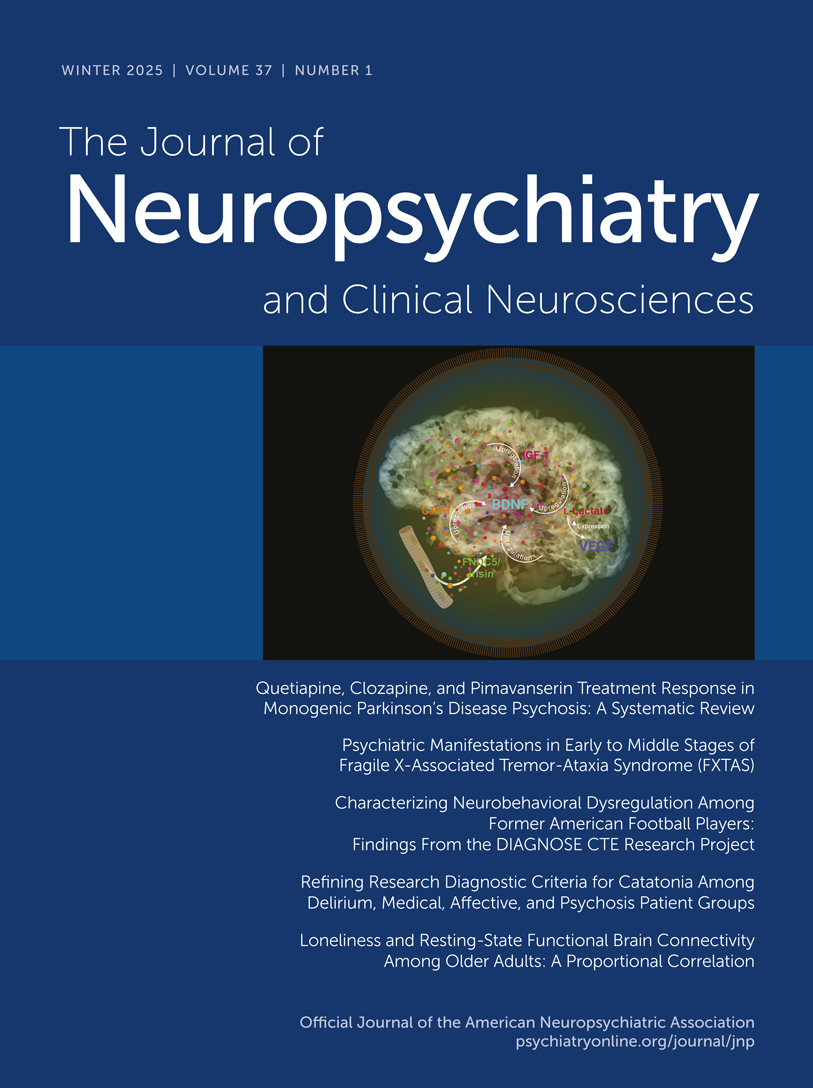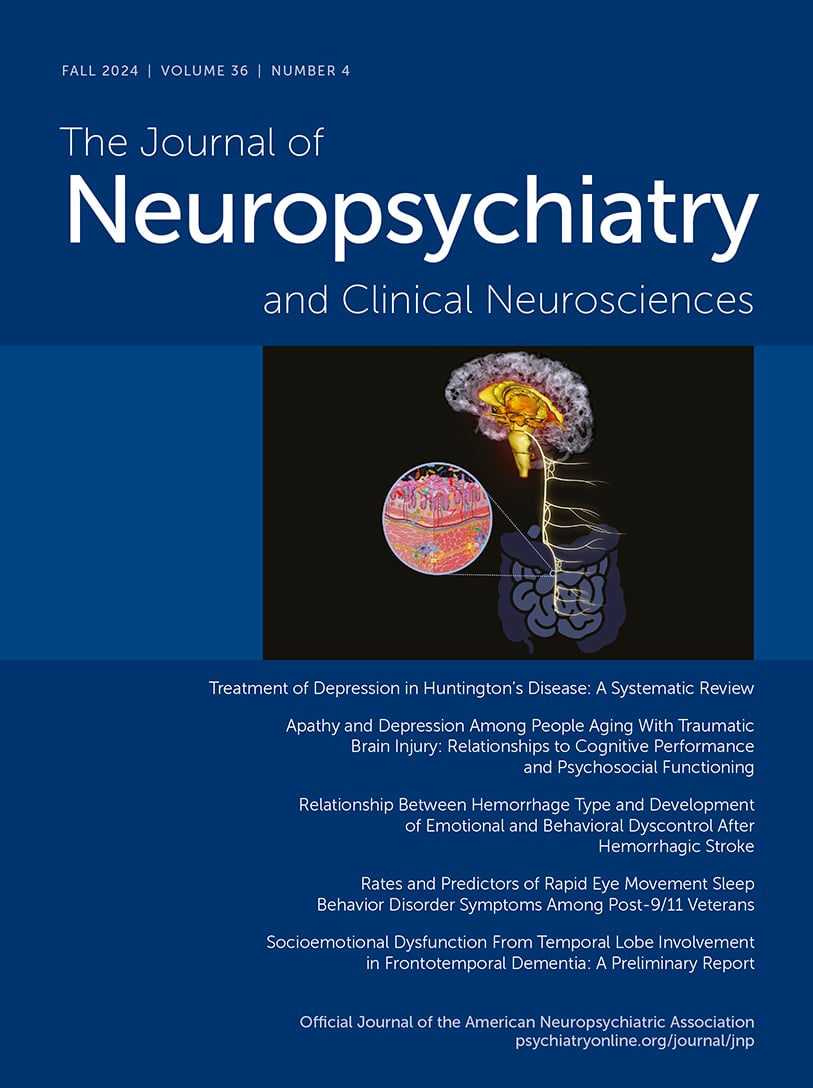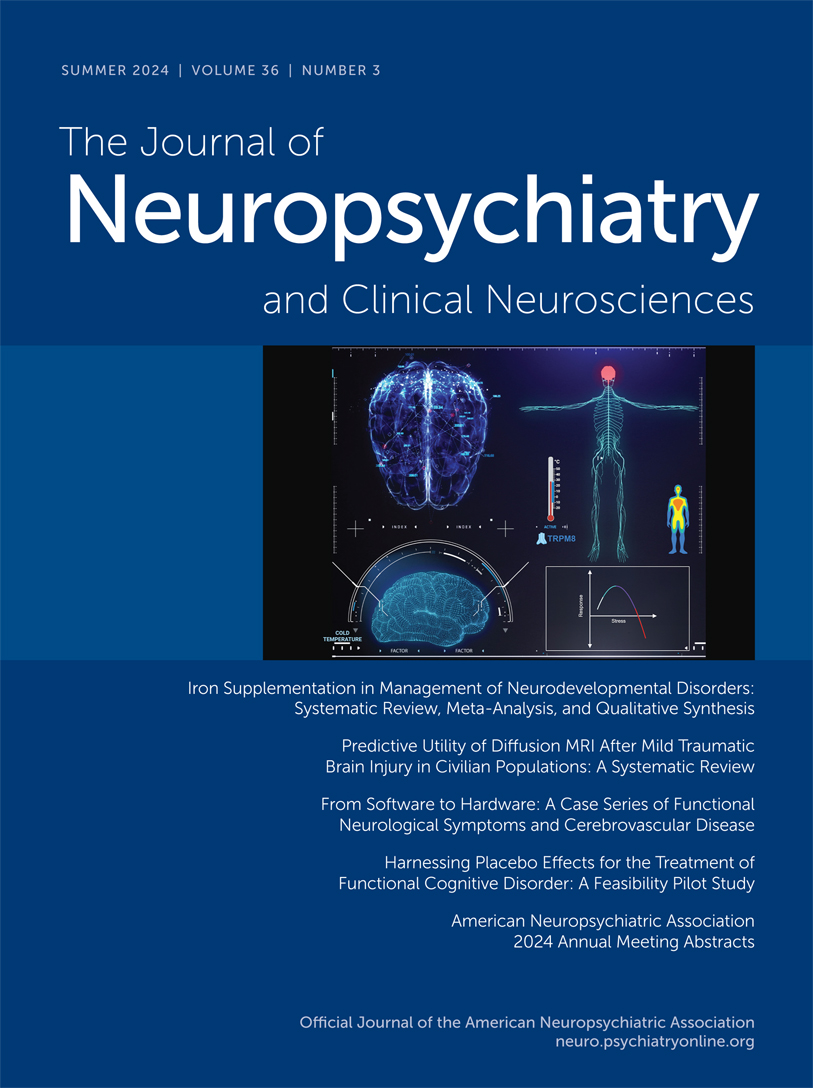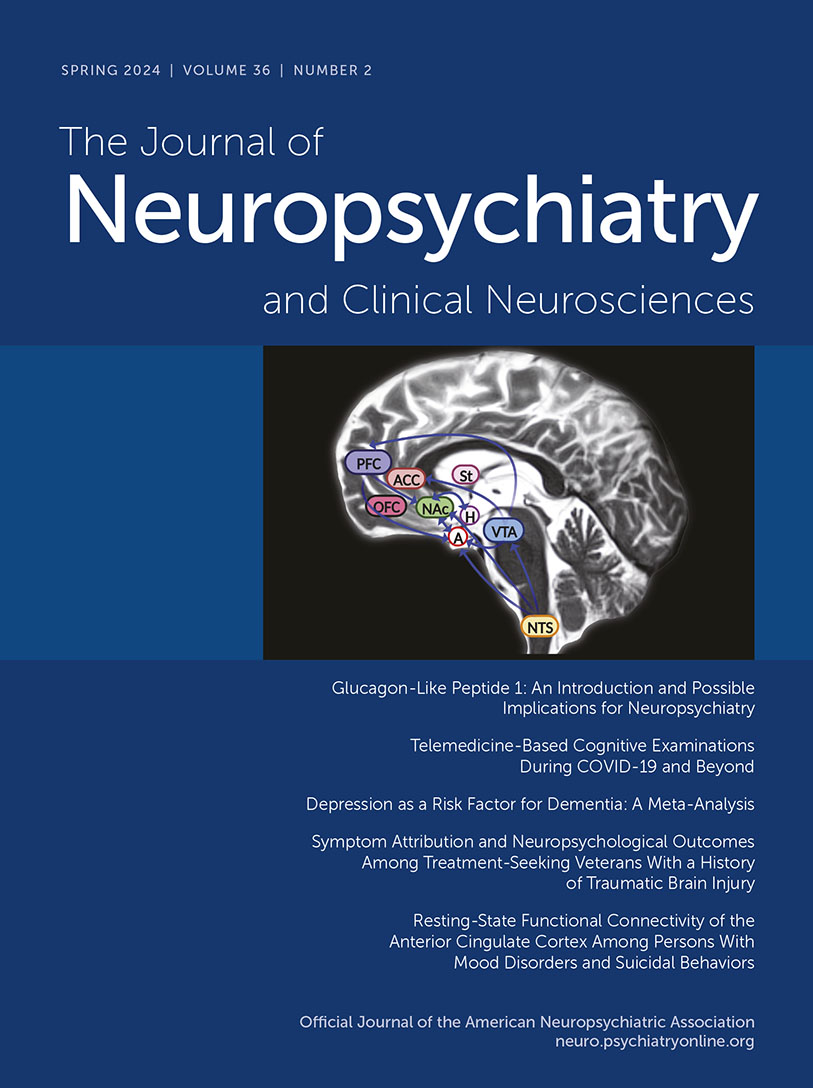The Journal of Neuropsychiatry and Clinical Neurosciences
- Volume 36
- Number 2
- April 2024
Windows to the Brain
Special Articles
Publication date: 19 December 2023
Pages87–100Telehealth and telemedicine have encountered explosive growth since the beginning of the COVID-19 pandemic, resulting in increased access to care for patients located far from medical centers and clinics. Subspecialty clinicians in behavioral neurology & ...
https://doi.org/10.1176/appi.neuropsych.20220154Publication date: 19 December 2023
Pages101–109Dementia is a syndrome characterized by the deterioration of cognitive function beyond what is expected. The increased risk of developing this syndrome resulting from established modifiable risk factors, such as depressive episodes, is currently a subject ...
https://doi.org/10.1176/appi.neuropsych.20230043Articles
Publication date: 18 October 2023
Pages110–117Objective: Recent studies suggest that psychosocial factors can have an impact on brain health. Yet, it is unclear whether psychosocial stress affects aging of the brain. The aim of the study was to investigate the association between psychosocial stress ...
https://doi.org/10.1176/appi.neuropsych.20230020Publication date: 23 January 2024
Pages118–124Objective: Repetitive head impacts in professional fighting commonly lead to head injuries. Increased exposure to repetitive head trauma, measured by the number of professional fights and years of fighting, has been associated with slower processing speed ...
https://doi.org/10.1176/appi.neuropsych.20230108Publication date: 09 January 2024
Pages125–133Objective: Traumatic brain injury (TBI) is a risk factor for suicide, but questions related to mechanisms remain unanswered. Impulsivity is a risk factor for suicide and is a common sequela of TBI. The authors explored the relationships between TBI and ...
https://doi.org/10.1176/appi.neuropsych.20230044Publication date: 09 January 2024
Pages134–142Objective: In this cross-sectional study, the authors aimed to examine relationships between illness perception, measured as symptom attribution, and neurobehavioral and neurocognitive outcomes among veterans with a history of traumatic brain injury (TBI). ...
https://doi.org/10.1176/appi.neuropsych.20230067Publication date: 20 November 2023
Pages143–150Objective: To assess whether anterior cingulate cortex (ACC) abnormalities contribute to suicide risk in major depressive disorder and bipolar disorder, the investigators compared resting-state functional connectivity (rsFC) of ACC subdivisions between ...
https://doi.org/10.1176/appi.neuropsych.20220203Publication date: 23 January 2024
Pages151–159Objective: The purpose of this study was to evaluate the influence of a new course of antidepressant monotherapy on gut and oral microbiomes and the relationship to depressive symptoms. Methods: Longitudinal microbiome samples obtained from 10 U.S. veterans ...
https://doi.org/10.1176/appi.neuropsych.20220221Clinical and Research Reports
Publication date: 20 November 2023
Pages160–165Objective: Behavioral variant frontotemporal dementia (bvFTD) is sometimes misdiagnosed as a primary psychiatric disorder, such as major depressive disorder, bipolar disorder, an anxiety disorder, autism spectrum disorder (ASD), or attention-deficit ...
https://doi.org/10.1176/appi.neuropsych.20230041Education in Behavioral Neurology & Neuropsychiatry
Publication date: 23 January 2024
Pages166–171Neuroscience-based patient education has become an evidence-based strategy for enhancing chronic pain treatment. Advances in understanding the neuroscience of functional neurological disorder (FND) may allow similar approaches to be developed and ...
https://doi.org/10.1176/appi.neuropsych.20230060Opinion
Past Issues
View Issues Archive
Vol. 37 | No. 1

Vol. 36 | No. 4

Vol. 36 | No. 3
